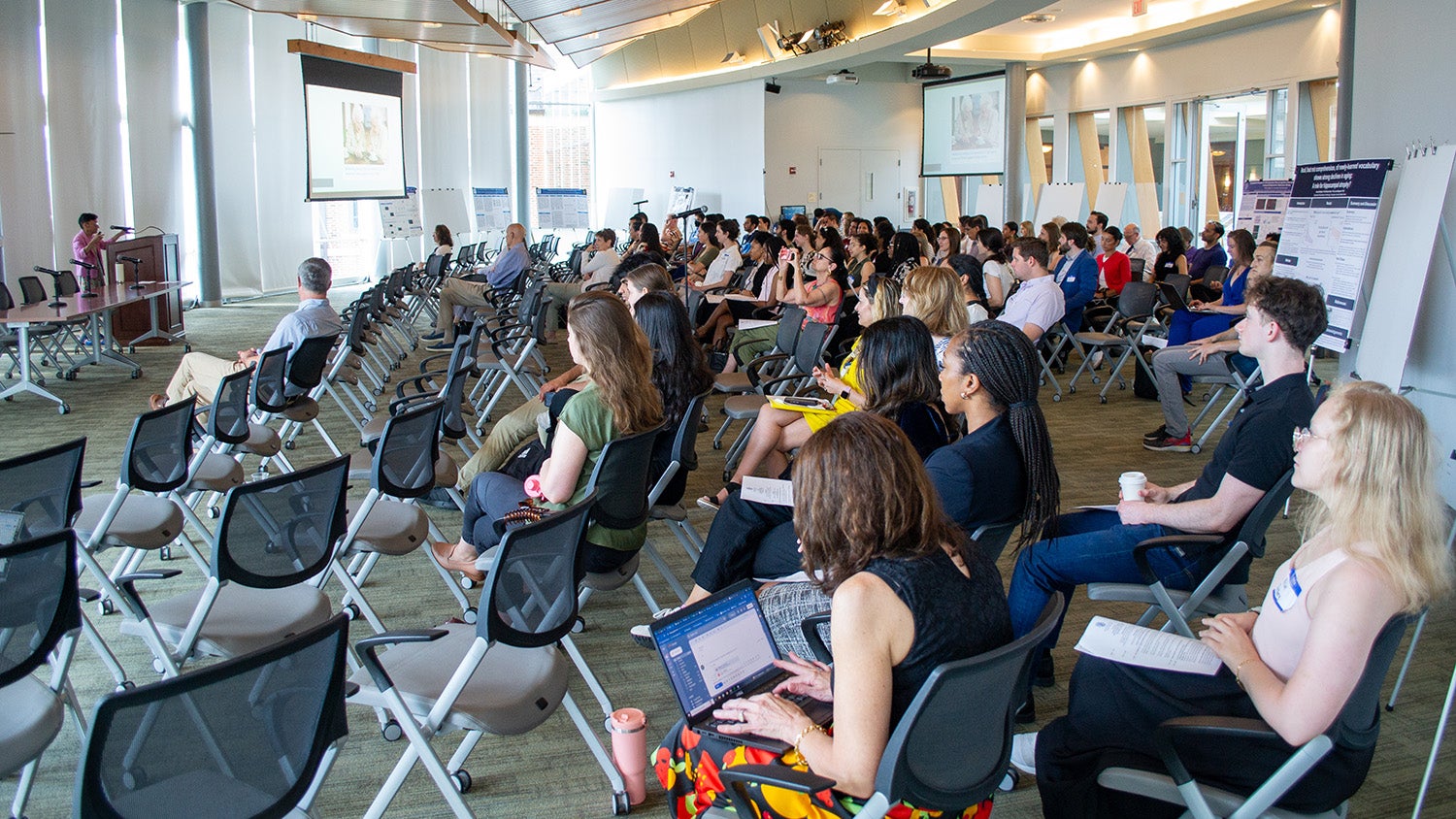Researchers Explore Resilience at 3rd Annual Healthy Aging Symposium
Resilience in aging is the ability to rebound from a broken hip, a heart attack, the loss of a loved one, the onset of dementia, or other challenges that can arise later in life.
“When you talk about successful aging … the key is resilience,” Barbara Resnick told attendees at Georgetown University’s third annual Healthy Aging Symposium.
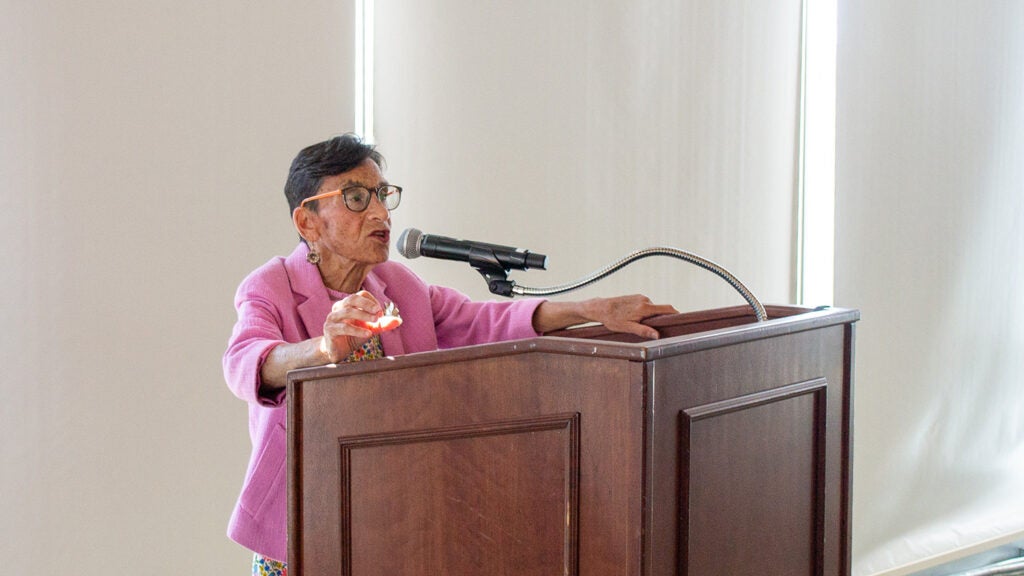
Barbara Resnick delivers the plenary speech at the Healthy Aging Symposium.
More than 100 medical and biomedical students, faculty and postdocs from Georgetown and other universities gathered for the symposium in the Hariri Building on July 10, 2024. Resnick, a geriatric nurse practitioner and Sonya Ziporkin Gershowitz Chair in Gerontology at the University of Maryland School of Nursing, addressed attendees in a plenary speech on the impact of resilience on behavior and outcomes. She asked the audience to begin by considering how they have responded to challenges in their own lives.
“The ultimate definition of resilience is the ability to not only spring back, but to spring forward and grow through the experience,” Resnick said.
She distinguished several factors that aid seniors in making a “resilient reintegration” after a setback – from commitment and coolheadedness, to a sense of humor, to willingness to ask for help. When practitioners evaluate a patient’s resilience, she said, they should focus not on which outcomes the patient is able to achieve, but rather on how the patient approaches the uncertain process of recovery.
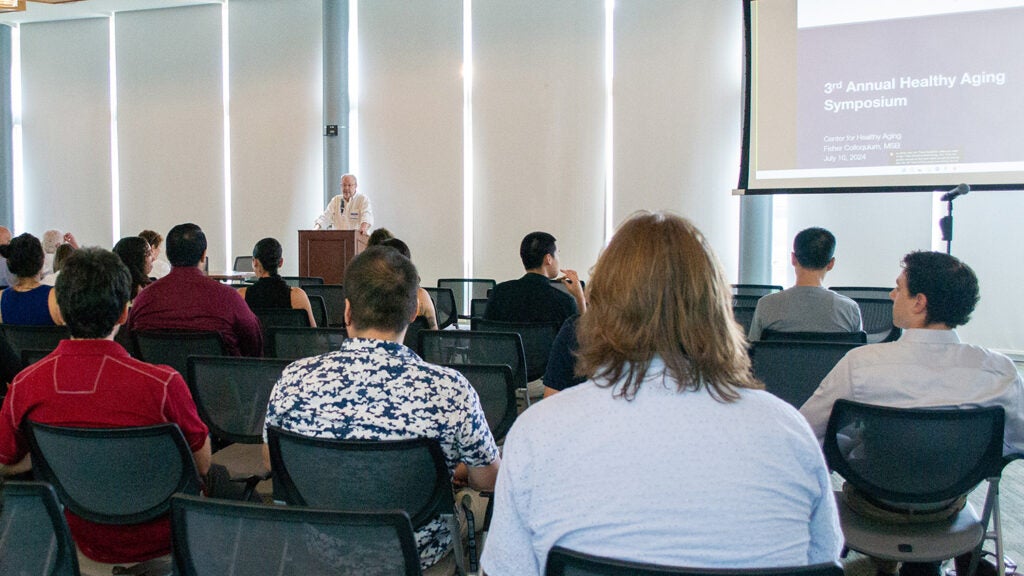
Attendees listen as Center for Healthy Aging Director Bill Rebeck delivers welcome remarks.
Symposium co-organizer Bill Rebeck, director of Georgetown’s Center for Healthy Aging, applauded the theme of resilience for bridging the many areas of study presented throughout the day.
“[Resilience] certainly resonates with all of us,” Rebeck said. “And I think it’s really helpful for labs like ours, that are really focused on a small question, to hear bigger concepts.”
Researchers at the symposium presented on resilience in aging, animal models for aging research, and the social determinants of aging and health. Panels addressed health challenges such as dementia, delirium, and HIV infection, as well as advances in biomedical aging research. A poster session allowed scientists from several academic departments and programs to share their work, from neuroscience to pharmacology and physiology to biochemistry and more.
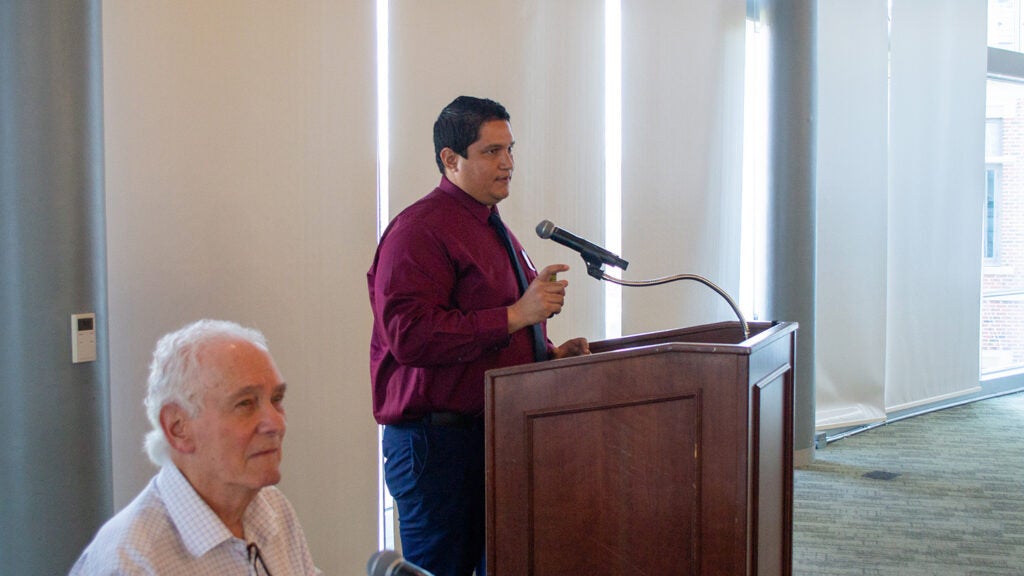
Zac Colon speaks as a member of the “Aging Biomedical Research Advances” panel.
“It’s always good to be able to present for a [broader] audience, and just learning more about aging from all the other speakers was really awesome,” said Interdisciplinary Program in Neuroscience doctoral student Zac Colon, who spoke about changes in the hippocampus and the dorsal striatum region of the brain during aging. “I just really appreciate all the positive feedback that I’ve gotten from everybody.”
Valerie Lewitus, a postdoctoral fellow in the Department of Neuroscience who presented on the effects of exercise on motor skill learning in mice, said: “I think I got some really great questions, and also really great suggestions of where the research can go in the future.”
Growing Interest in Aging
Reflecting on the symposium’s third iteration, organizers said aging science at Georgetown is garnering more and more attention.
“The first year we did this – would there be anybody who cared about aging?” Rebeck recalled. “Now I know that there are hundreds of people across Georgetown and beyond who care about aging. … We’re starting to have speakers who come in from George Washington [University] or the University of Maryland, and my hope would be that that would continue to grow.”
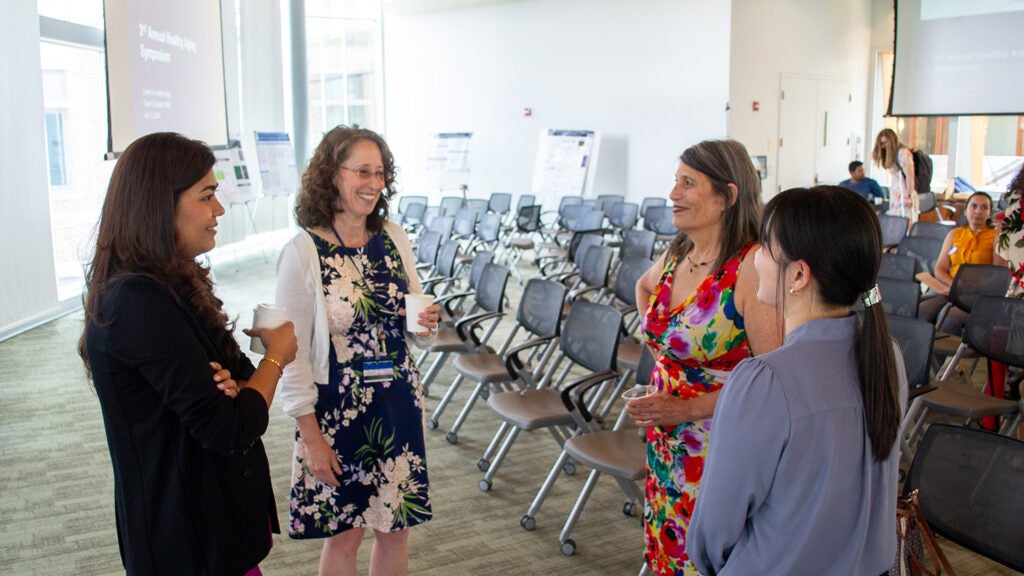
Pamela Saunders, second from left, speaks with presenters.
Pamela Saunders, symposium co-organizer and aging center co-director, reflected on “this opportunity to bring people together from across the university, across the area.”
“I think there are more people interested in aging and geriatrics and gerontology than ever before at Georgetown,” she said, pointing to an increase in School of Medicine students who take a geriatrics clerkship as part of their studies. “So, [the symposium] is really a breath of fresh air for Georgetown.”
With greater interest also comes a greater diversity of scientific approaches to the challenges of aging. Colon said that breadth of expertise is an asset, noting the many perspectives that came up in the animal models discussion.
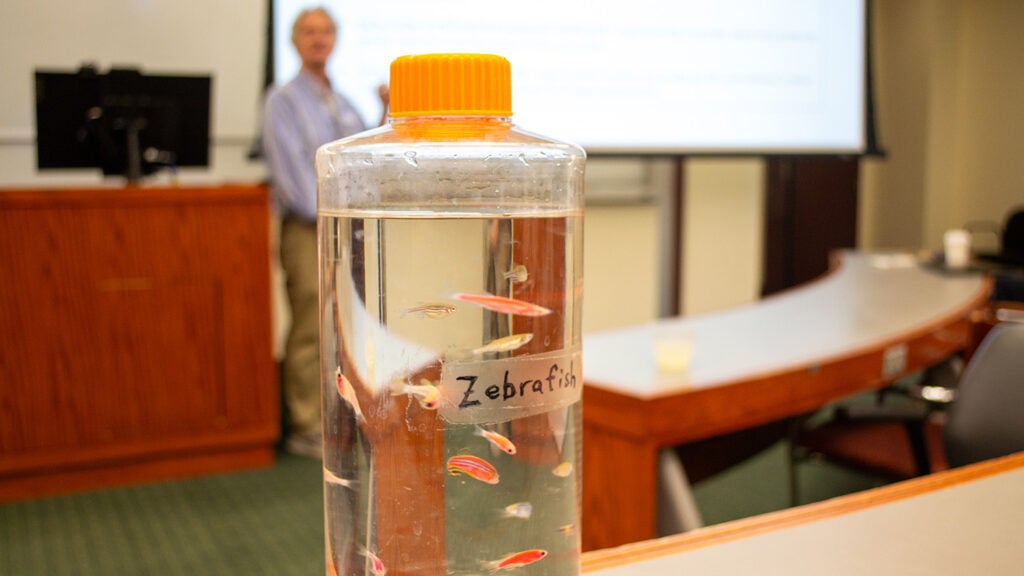
A containerful of zebrafish attend the talk on animal models.
“When we talk about aging, senescence is a big thing, but somebody might be thinking like a biological senescence, other people might think cellular, other people might think DNA damage, and some people think it’s a natural process of the body while some people might think it’s detrimental,” Colon said. “We had an ecologist, we had a neuroscientist, we had somebody using zebrafish. … Just seeing the different perspectives of when somebody says senescence, they might be thinking [a] different thing than you’re thinking.”
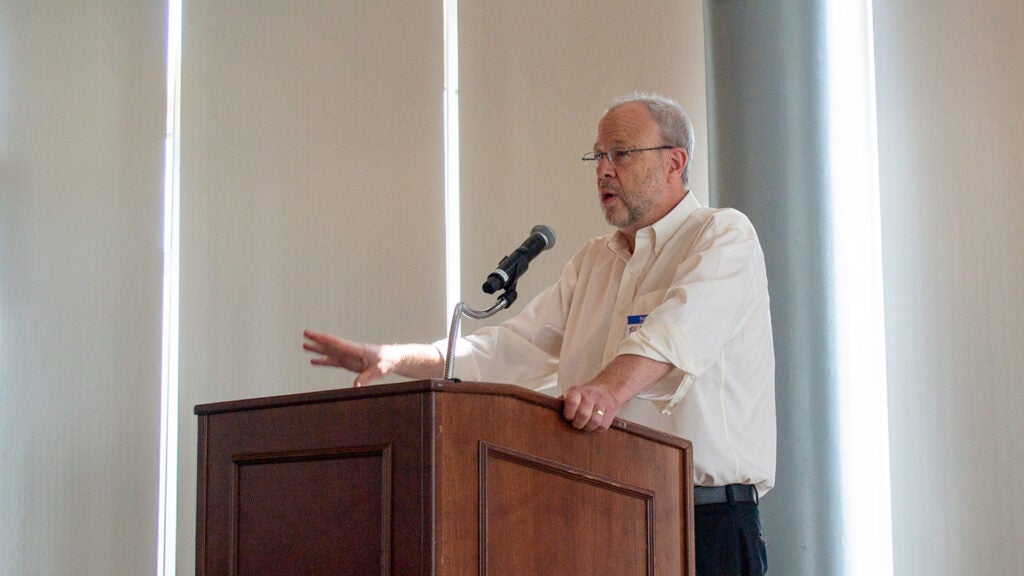
Bill Rebeck addresses the crowd.
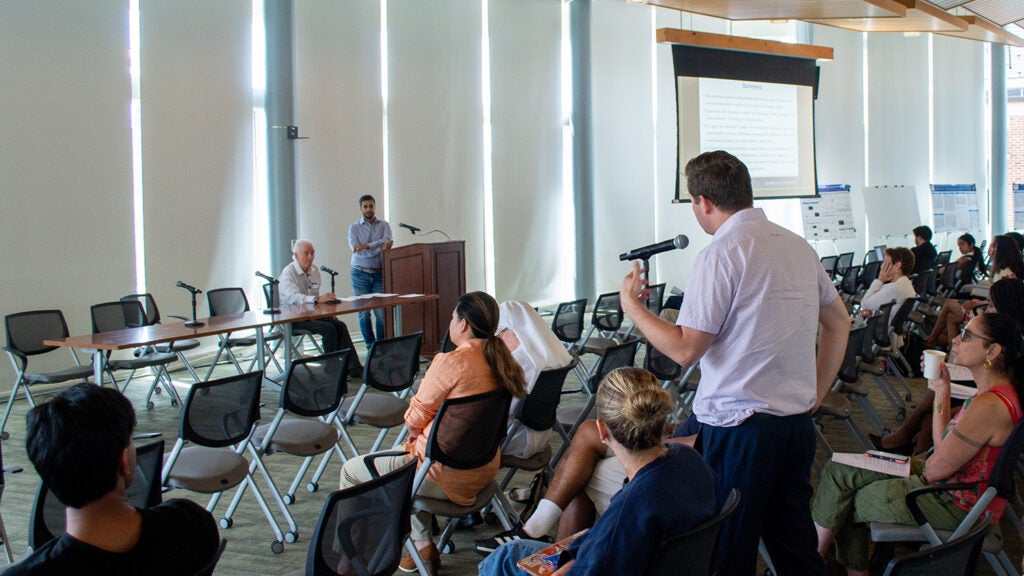
An attendee poses a question to Pharmacology & Physiology doctoral student Yousef Aljohani, standing at podium.
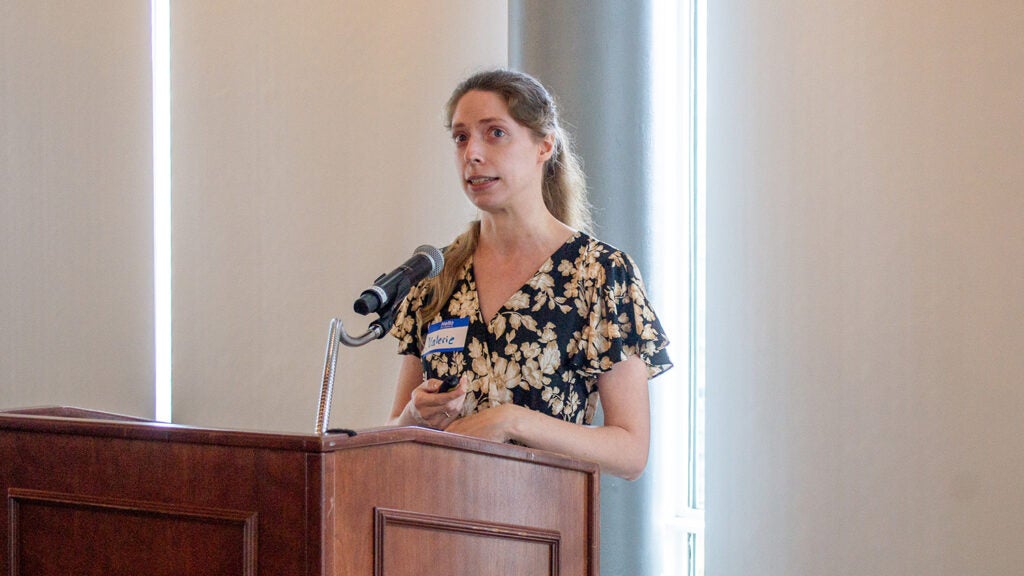
Neuroscience postdoctoral fellow Valerie Lewitus speaks about the effect of exercise on motor skill learning in mice.
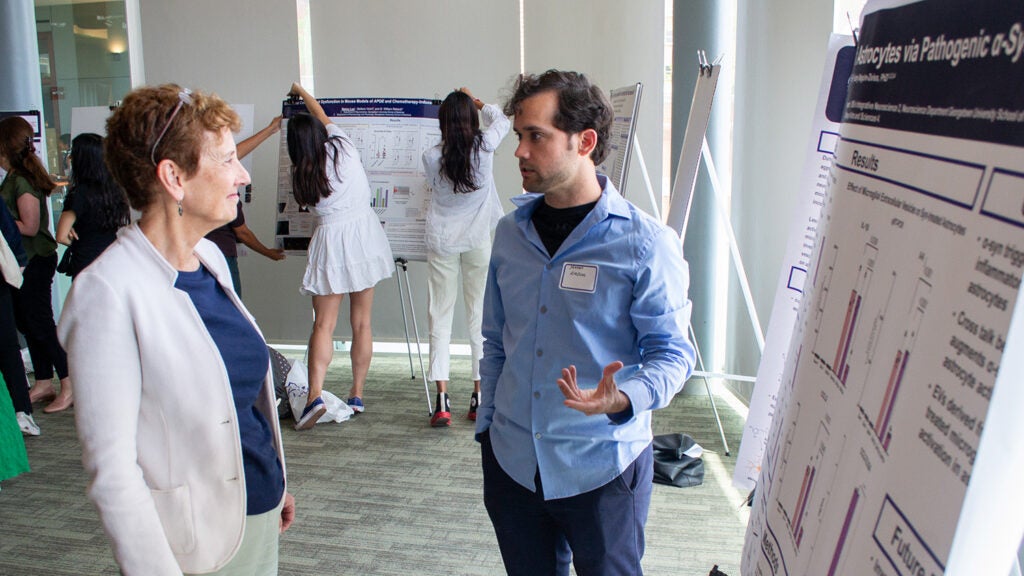
Anna Riegel, GUMC Vice President for Biomedical Education and Research, talks to a presenter during the poster session.
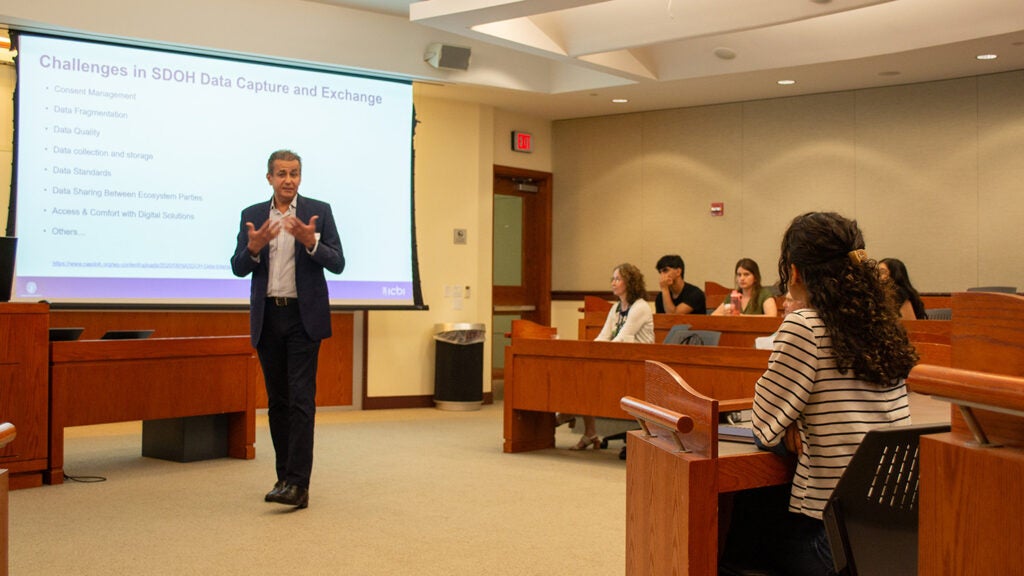
Adil Alaoui, director of health information technology and operations at the Georgetown Innovation Center for Biomedical Informatics and a Health Informatics & Data Science faculty member, speaks about social determinants of aging and health.
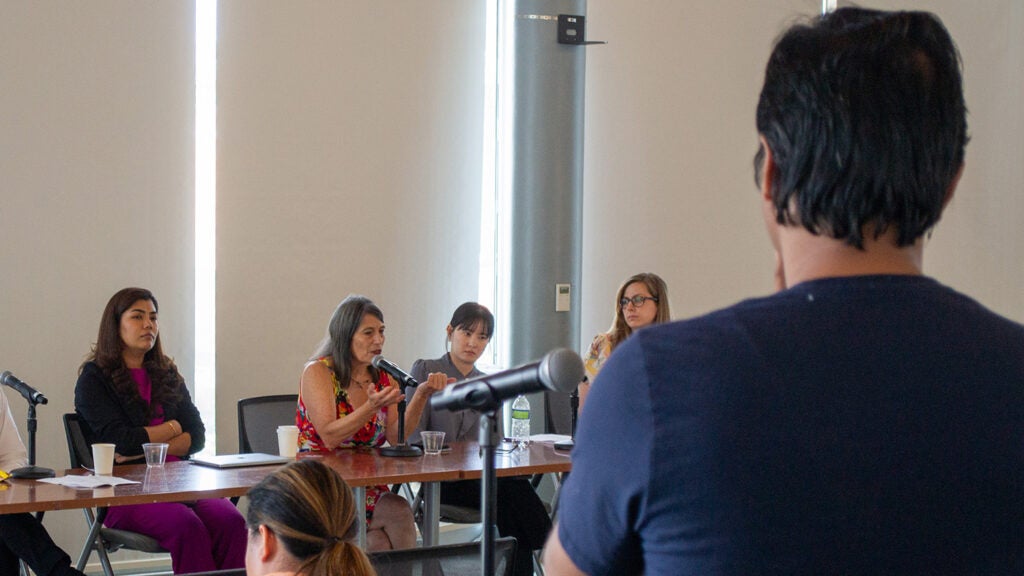
Pharmacology and physiology professor Adriane Fugh-Berman responds to an attendee’s question after presenting on the historical over-promotion of hormone therapy as a treatment for menopause.
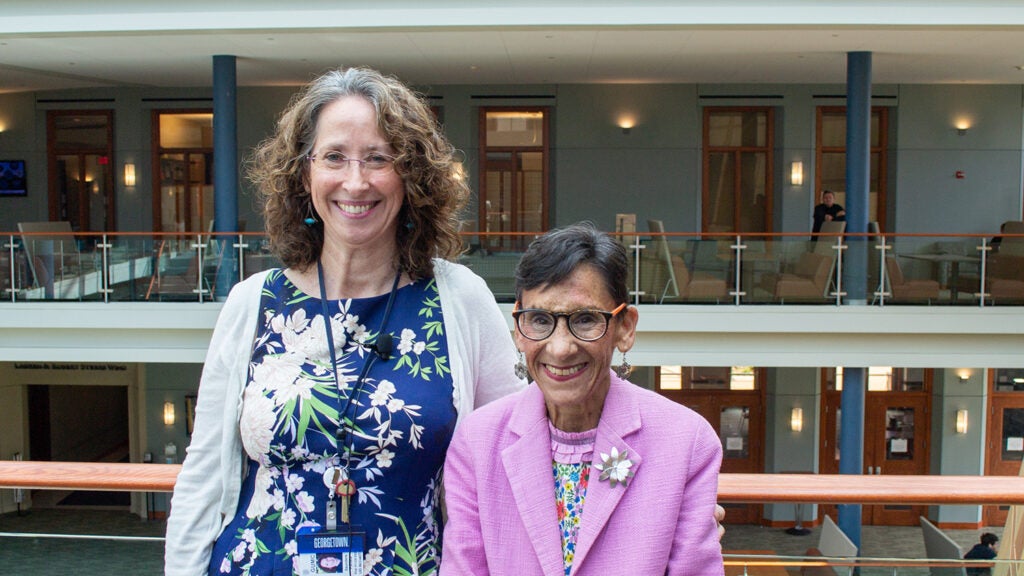
Center for Healthy Aging Co-Director Pamela Saunders, left, poses with plenary speaker Barbara Resnick.
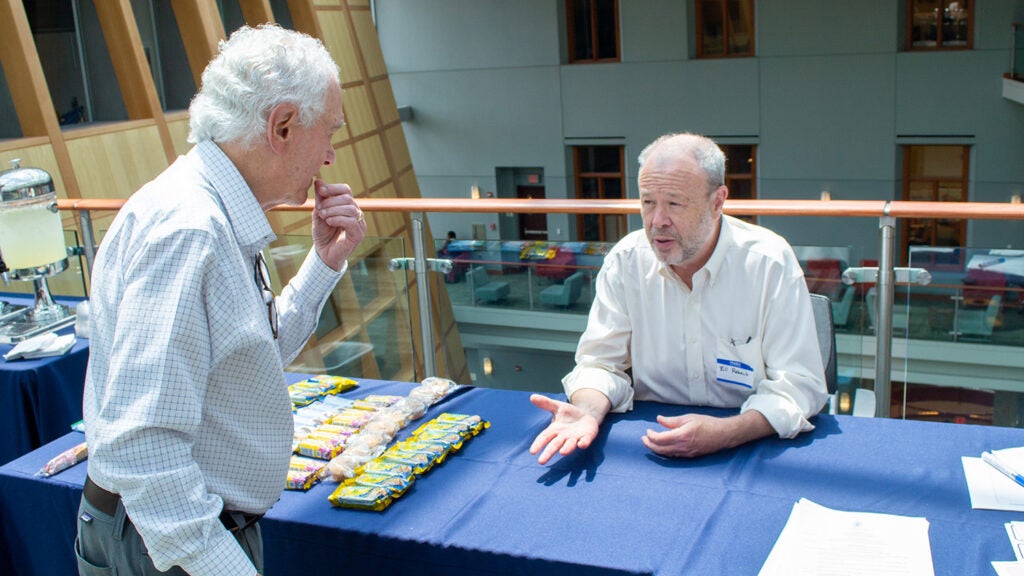
Bill Rebeck, seated, speaks with pharmacology and physiology professor Kenneth Kellar.
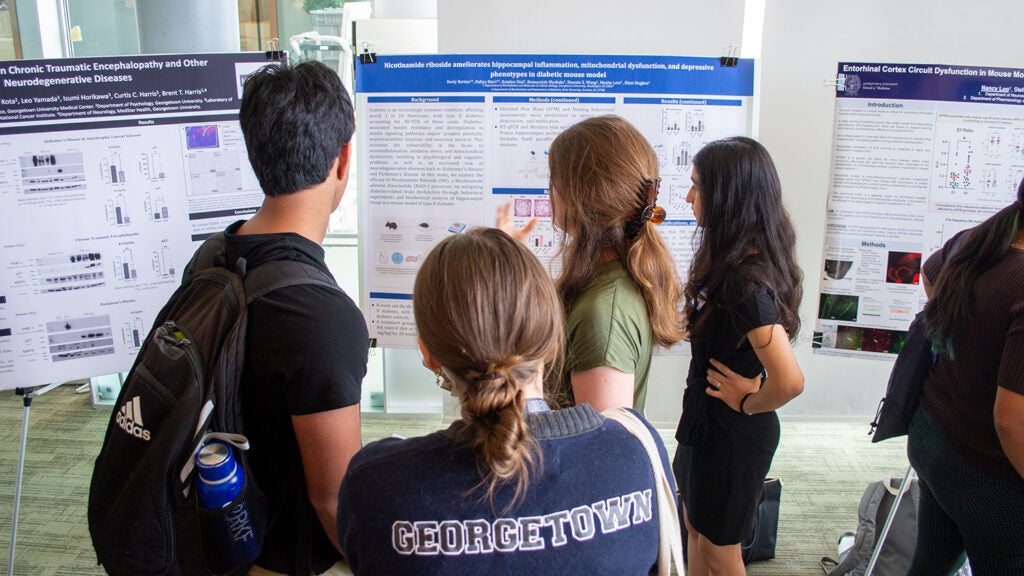
Attendees examine a research poster.

